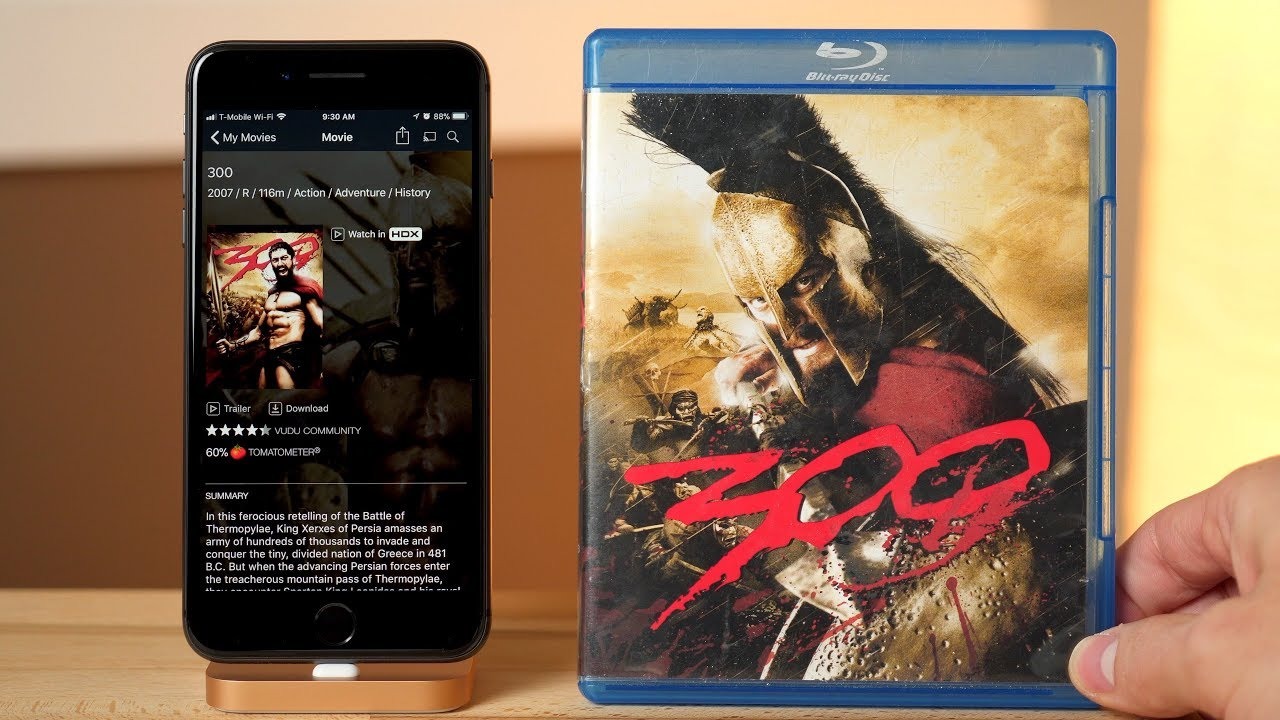Apple over the weekend responded to a viral tweet claiming it had removed purchased movies from a user's iTunes account with their consent, allegations that kicked spurred a flood of commentary regarding digital media rights.
The tweet in question outlined a fairly simple-sounding scenario in which a user said three movies he had purchased in iTunes had been removed from his account, meaning he was unable to play or re-download them. Apple support acknowledged that the movies were gone and attempted to rectify the issue by providing rental credits, far off the value of the missing films.
Me: Hey Apple, three movies I bought disappeared from my iTunes library.
— Anders G da Silva (@drandersgs) September 10, 2018
Apple: Oh yes, those are not available anymore. Thank you for buying them. Here are two movie rentals on us!
Me: Wait... WHAT?? @tim_cook when did this become acceptable? pic.twitter.com/dHJ0wMSQH9
The problem, and initial response from Apple, prompted speculation that Apple has the power to delete purchased media at will, but an investigation by CNET suggests there is more to the story.
For starters, the user in question had recently relocated from Australia to Canada, changing their active region in the iTunes Store. Some movies are not available in different regions, and if they are, they can be different versions of the film. For instance, production houses might change political or regional references, remove aspects of a film to satisfy ratings boards in more conservative countries, or change the name of a movie to something more relevant for a specific audience.
That seems to have been the issue in this particular situation.
In a statement provided to CNET, an Apple spokesperson said, "Any movies you've already downloaded can be enjoyed at any time and will not be deleted unless you've chosen to do so. If you change your country setting, some movies may not be available to re-download from the movie store if the version you purchased isn't also available in the new country. If needed, you can change your country setting back to your prior country to re-download those movies."
The statement suggests neither Apple nor the studio pulled these specific films. Instead, the titles likely have Canada-specific versions that are different than those offered in Australian. Anders is also seemingly unable to switch back to the Australian iTunes Store as it requires a local Paypal or billing address, which he no longer has. There are apparently workarounds here, but it seems unnecessarily difficult to pull off.
The crux of the matter is physical ownership versus digital ownership. To date, Apple has not revoked access to a film that someone has purchased (outside of these fringe scenarios). For those who want to play it safe, best practices would imply downloading and creating a physical copy of the movie. Store these on a hard drive, and should ever the day come that Apple or a studio ever remove access, you still have them available.
In this case, it appears Apple Support has now pledged a workaround to allow Anders to once more have access to his movies. He also has been a good sport about it, noting he "fell into a licensing crack, it seems."
 Andrew O'Hara
Andrew O'Hara







-m.jpg)






 Christine McKee
Christine McKee
 Malcolm Owen
Malcolm Owen

 William Gallagher
William Gallagher



 Wesley Hilliard
Wesley Hilliard




-m.jpg)




52 Comments
Having a physical copy of the file does not mean you can play them. Apple has DRM embedded in its supposedly DRM free audio files and I have seen files purchased from iTunes become unplayable on any Apple device despite having purchased them long ago- or they were iTunes Match files downloaded from content I own.
I have spent way too much time with Apple help over a number of these files and ended up purchasing them a second time just to be done with it and I doubt this is unique to me.
Amazon has had this issue where purchased books disappeared from Kindles after the company had rights disputes with publishers.
To be truthful, the only way to be sure you have audio files you cannot have revoked is to buy physical CDs and not rely in any way on anything from an Apple server. I have mostly stopped buying iTunes tracks and buy physical CDs from Amazon to rip for my own use in ALAC (formerly Apple Lossless) or buy them DRM free from HD Tracks and others.
Tim wants to rent you everything- just like Adobe, Autodesk and Microsoft.
You'd better download the movie. I tend to rely on Apple to always have the movie available, but they might not. If Apple loses the right to sell the movie, and removes it from their library, you will not be able to "stream" it. It just isn't there, and there is no way to download it, even though you purchased it. This happened to me a few years ago with Avatar. In a different kind of situation all together, I purchased a movie from Apple. Apple tends to get around to actually charing me sometimes days later. When they charged me, there was a problem with my credit card. It is my online credit card that I use for services and what not. I have to fill the account with money periodically. Apple went to make a charge for the movie and there was not enough money in the account. Interestingly enough, I could not play any music or movies that I had already purchased. iTunes would just demand that get them the money. I couldn't even download free apps. Luckily I could just transfer money to the account and fix it. I do not think it fair that I be blocked from content I already purchased due to a problem with a current purchase though. This happened also when I used PayPal for a purchase.
Just download the movie and store it on some offline storage. Storage is cheap, download is expensive. On the Mac right click on the movie and choose “Show in Finder” in iTunes (on Windows I remember that as “Show in Windows Explorer”)... From the storage media copy it to your iPhone or iPad by drag & drop in iTunes, no need to download again...
Typical knee jerk reaction. It's ALWAYS Apple's fault!. Instead of "buying" digital content it might be better to be advertised as an unlimited "rental" agreement. Perhaps AI should do an investigative deep dive on the issue of digital content ownership. The DCMA is one huge bag of hurt when it comes to who has the rights to what. I have "purchased" a number of movies from iTunes, Vudu, and Prime but I have no idea what I actually bought. Streaming rights only? Do I "own" anything other than a license? Can the copyright owner remove a movie from the service I purchased it from? If I have a physical media copy of a movie I don't think I can be prevented from playing it a compatible device. Or can I?
What if Walmart decides to shut Vudu down? Do I lose the movies I purchased? do I have a right to a physical media version in it's place? I'm sure the lawyers have this all spelled out in the fine print somewhere.